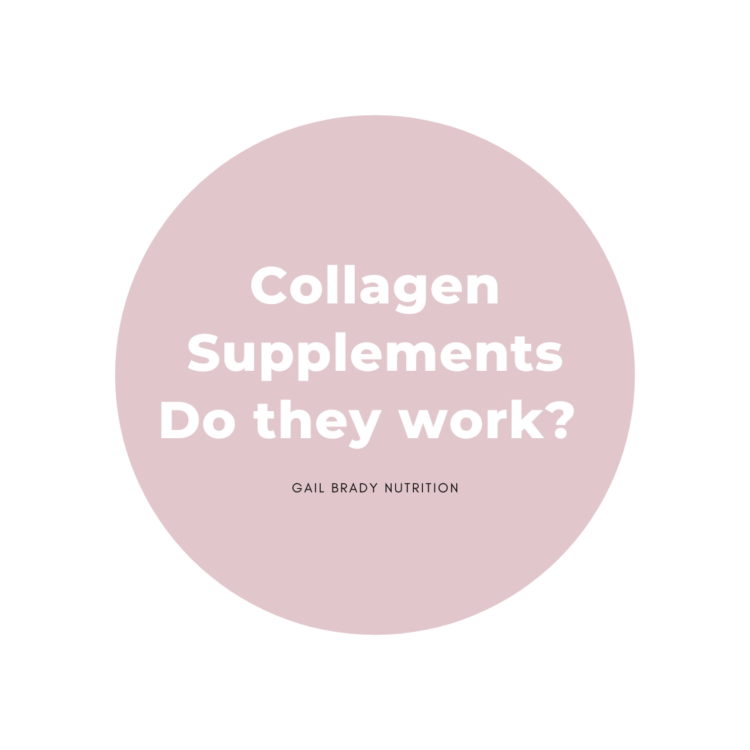The number of collagen supplements on the market has grown massively over the last few years.
Many women are taking them for their potential to promote skin, hair, bone, muscle and joint health.
Collagen may also be recommended for supporting gut health and could help to repair damage to the gut lining.
These are also some of the common issues experienced by women over 40.
So, what is collagen and does it work?
Collagen is made of proteins and is part of the body’s support structure which includes skin, muscle, bones and joints.
Collagen helps the skin to stretch and keeps it supple (elasticity).
It is like the glue that holds everything together.
But as we age the amount of collagen we produce in our body decreases.
In fact, according to research, by the time we get to 60, we may have lost around 50% of our body’s collagen… and 75% by the age of 80.
Collagen levels can also decline further due to certain diet and lifestyle habits such as diets high in sugar, nutrient deficiencies, sun damage, pollution and stress.
Collagen supplements
Many of the collagen supplements on the market come from cows, chickens or fish.
In order to be absorbed into your bloodstream, and therefore your body, natural collagen has to be broken down into a smaller predigested form.
The term for this is hydrolysed. It may also be called collagen peptides. It is often sold in liquid or powder form.
Collagen tends to be pretty tasteless so can be easily mixed into food or drinks.
But does it work?
Skin, Hair, Nails
As collagen levels decline with age we start to see more wrinkles and fine lines, and we may develop sagging skin.
Our nails can become brittle and our hair may thin and get dryer.
Collagen supplements may increase levels in the body, as well as help the body produce more of its own collagen.
A 2021 analysis of 19 clinical trials looking at the potential effects of collagen supplementation on skin health, found that hydration, elasticity, fine lines and wrinkles were improved over a 3-month period.
Supplements were taken on a daily basis for around 90 days and the results were reported to last for approximately 30 days after finishing the supplements.
It did not seem to matter what type of collagen was used (fish, chicken, cow), almost all the studies reported improvements.
What should be known is that many studies are funded by the collagen suppliers themselves and therefore it is likely that a higher risk of bias is present.
Another small study showed that collagen supplements may help to reduce the appearance of cellulite over a 6 month period.
Collagen may also support hair health by providing essential nutrients but further research is needed.
Joints and Bones
Collagen keeps our joints working smoothly and our bones strong
Scientific studies have found that collagen supplements could therefore support joint and bone health and may help to manage osteoarthritis.
They have also been shown to support muscle growth.
Safety
Collagen supplements are believed to be safe with have few side effects reported. None of the clinical trials in the 2021 analysis of 19 studies found any adverse effects.
What you should also know…
Coenzyme Q10, hyaluronic acid and vitamin C may all help to absorb collagen in the body. However, further research is needed.
Vegan forms of collagen do not contain collagen itself but the nutrients to support the making of collagen in the body
It can take weeks or even months to see the benefits – 1-3 months for skin and longer for joint and bone health but current evidence suggests that it could work so it may be worth considering.
Make sure you buy a hydrolysed collagen
There are 3 different types I, II and III. Type II may be more effective for joint health and to protect against cartilage breakdown and types I and III may support skin elasticity.
As always, please check with your healthcare provider before starting any supplements
References
Miranda, Weimer & Rossi (2021) Effects of hydrolyzed collagen supplementation on skin aging: a systematic review and meta-analysis




